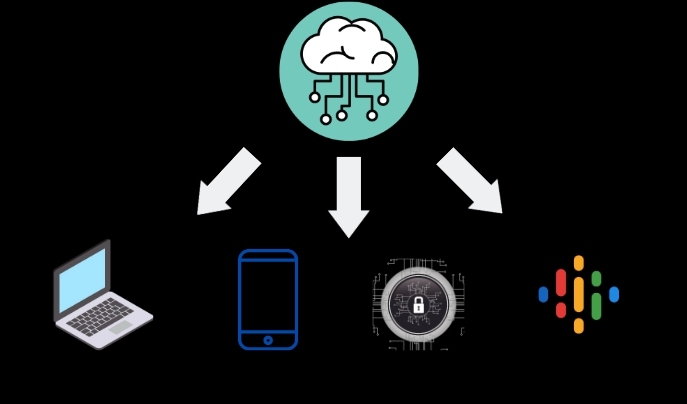Fog computing is a decentralized computing architecture. The method of computing offers reduced latency and improvement in the overall performance of data processing. As per its nature, the data gets processed locally instead of moving to a centralized cloud server. Modern data IoT applications see a prominent use of fog computing. In this, data is generated from devices present at the edge of the network. On the other hand, Cloud computing has a centralized computing architecture. Users enjoy on-demand access to shared computing resources. The resources here refer to elements such as servers, storage, applications, and various management services. All of these services take place over the internet.
Cloud Computing Explained
Cloud computing allows organizations to scale up or down their computing resources as per their requirement. They can reduce the need for expensive hardware and infrastructure with efficient management of functions in the cloud. Cloud computing offers several benefits, including cost savings, flexibility, and scalability. Cloud Service Providers offer a variety of services, such as Infrastructure as a Service (IaaS), Platform as a Service (PaaS), and Software as a Service (SaaS). All of these services cater to enterprises as per their business requirements.
Difference Between Fog Computing and Cloud Computing
Based on certain factors, we can know how fog computing and cloud computing differ from each other even though both have a thriving presence in the business sector.
Fog Computing vs Cloud Computing: Which is Better?
The answer to this question is pretty straightforward. If an enterprise’s function requires lesser scalability or lower latency, they will implement fog computing technology. The concerned firms will use cloud computing technology for larger implementations like managing social media data. Testing is also being carried out for a hybrid implementation of both fog computing and cloud computing. This will ensure that the enterprises will put to use the advantages of both technologies. At the same time, the drawbacks of both concepts will be largely minimized. We hope that in the near future, enterprises will opt for hybrid computing at a reasonable cost instead of separate implementations.
Conclusion
So, this summarizes this discussion regarding the comparison between Fog computing and Cloud computing and which is better between these two. It depends on the use case a business is aiming to execute and how beneficial either of the two forms of cloud computing will be in that use case. Then as per their analysis of the case studies, they can opt for cloud computing or fog computing for a longer form of implementation.
